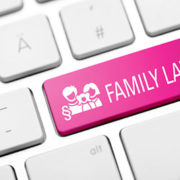Because many attorneys do not work in the juvenile courts, it is something I get asked about often. Juvenile court is very different from common pleas and municipal court. I got interested in working in the juvenile court when I was working on my Masters degree at Xavier University. It was at Xavier that I learned that juvenile courts were developed to deal with the unique issues of juveniles and to help give children a second chance when they mess up. Unfortunately, juvenile courts have morphed into something very different since their creation.
Many clients contact me regarding their son or daughter’s case. Often times, the parent is not satisfied with the advice they are getting from the court appointed counsel. I do my best to explain the following:
1) If your son or daughter is charged with a “crime” in juvenile court it is called either “delinquency” or “unruly.”
2) Your child basically has two choices. They can admit the allegations in the complaint, or they can deny the allegations in the complaint.
3) If your child admits the allegations, the case automatically goes to disposition and the child is “sentenced.” Depending on the allegation, sentencing may include probation, writing a letter of apology, time in detention, house arrest, community service, and many other options, all at the discretion of the Magistrate or Judge.
4) If your child denies the allegations, the court sets the case for a trial. At trial, the court will determine whether the juvenile is responsible for the alleged acts. Unfortunately, if your child denies the allegations but then is found responsible for the acts, the fact that your child denied the allegations may be used against your child when it comes time for disposition (although not overtly).
Many parents admit to me that their child committed the act alleged; however, they do not feel their child should admit to the allegations because of the repercussions later in life. I would agree with this approach 99% of the time for adults; however not necessarily with juveniles in juvenile court.
The juvenile should certainly ask for counsel to be appointed. Once appointed, counsel can solicit plea offers; however, plea bargains are not offered as often in juvenile court as they are in common pleas court and they do not have quite the same effect in juvenile court. The reason pleas are not offered as often is because the child does not get “charged” unless the prosecutor has a solid case. The reason pleas do not have the same effect as in common pleas or municipal court is because in those courts, the crime of conviction often dictates the parameters of sentencing that the Judge can order. In juvenile court, the Judge has a lot of discretion because sentencing guidelines in juvenile court do not exist. Even if the child admits the allegations, he/she will still be given the opportunity to make a statement and provide mitigating arguments, which is often all the juvenile wants.
While it is never a bad idea to get a second opinion in your case, if your court appointed counsel is asking your child to admit the allegation in a juvenile court case, this is probably not the result of laziness or incompetence. You should ask the child’s attorney what other options you have, assuming that your child committed the alleged act. You will likely see that your other options aren’t great.
If your child vehemently denies the allegation, you must decide whether you believe him/her. Hiring counsel and going to trial is only a good option if your child really didn’t commit the alleged act (and not just that they deny doing it, but that they, in fact, didn’t do it) and that is something that you probably don’t know for sure, unless you were there when the incident occurred.

